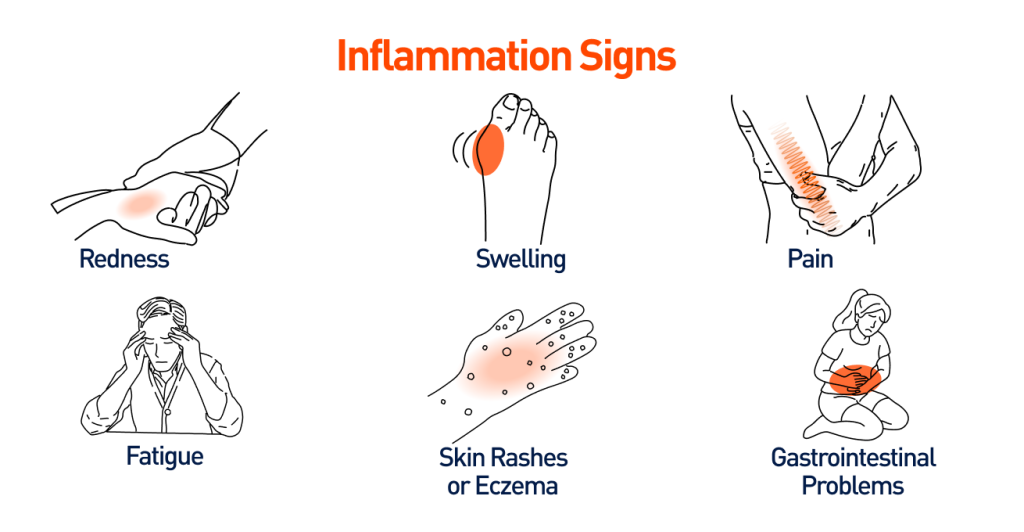
Why Excessive Gym Can Be a Reason for Health Problems, A Functional Medicine Perspective

Why Excessive Gym Can Be a Reason for Health Problems, A Functional Medicine Perspective
The modern world glorifies hustle, intensity, and pushing limits, in business, in lifestyle, and most certainly in fitness. Gym culture has evolved into a daily ritual for millions of people striving to achieve strength, confidence, and longevity. While exercise remains a cornerstone of good health, there is a fine line between training for wellness and overtraining to the point of harm.
Functional medicine, which views the body as an interconnected system rather than isolated organs, offers a deeper understanding of why excessive gym workouts can lead to health breakdowns. It explains that when we push beyond what the body can recover from, we move from building resilience to triggering imbalance, hormonally, metabolically, and emotionally.
In this article, we will explore how excessive exercise affects the body through the lens of functional medicine and what can be done to restore true health and balance.
Understanding the Functional Medicine Approach

Functional medicine looks at health through the concept of systems biology, the idea that every system in the body influences every other. Instead of focusing on symptoms alone, it examines root causes. When applied to fitness and exercise, functional medicine asks:
Is your body recovering adequately?
Is your hormonal system balanced?
Is your gut, immune, and energy system supported?
These questions matter because exercise, while beneficial in moderation, is also a form of stress. A workout challenges the body; it breaks muscle fibers, triggers inflammation, and raises cortisol temporarily. This is healthy when followed by recovery and nourishment. But when exercise becomes excessive, with minimal rest, inadequate nutrition, and chronic pressure, it can lead to deeper physiological disruptions.
1. The Body Does Not Differentiate Between Stress Sources

The first and most crucial insight from functional medicine is that the body does not distinguish between different types of stress. Whether the stress comes from a demanding job, lack of sleep, emotional conflict, or excessive exercise, the body’s response is the same: it activates the hypothalamic-pituitary-adrenal (HPA) axis, leading to a surge in cortisol and adrenaline.
Short-term increases in these hormones are essential for performance, but when cortisol remains elevated for prolonged periods — as it does in people who overtrain without recovery — it leads to chronic stress physiology. This can cause a cascade of issues, including:
- Weight retention, particularly around the abdomen
- Sleep disturbances and reduced melatonin production
- Mood fluctuations, anxiety, and burnout
- Lowered immune function and frequent illnesses
In women, chronically high cortisol can suppress reproductive hormones, resulting in irregular menstrual cycles or amenorrhea. In men, it can reduce testosterone levels, leading to fatigue and decreased muscle growth.
Functional medicine focuses on regulating this stress response through balanced training schedules, proper sleep hygiene, and adrenal support using adaptogenic herbs and targeted nutrition.
2. Mitochondrial Fatigue — The Energy Crisis Within Cells
Every cell in your body contains mitochondria, the powerhouses responsible for producing adenosine triphosphate (ATP), the molecule that fuels all cellular activities. During exercise, your mitochondria work harder to generate energy for muscle contractions. When workouts become excessive without sufficient nutrient intake and rest, these mitochondria become depleted, resulting in mitochondrial fatigue.
Symptoms of mitochondrial fatigue include chronic tiredness, brain fog, slower recovery after workouts, and reduced stamina despite consistent effort. This phenomenon explains why some individuals who train excessively feel drained rather than energized.
Functional medicine practitioners often assess mitochondrial function through organic acid testing and nutrient profiling. The goal is to identify deficiencies in nutrients such as CoQ10, magnesium, B vitamins, and carnitine, all essential for cellular energy production. Restoring these nutrients helps the body generate energy efficiently while supporting recovery.
3. Inflammation and the Shift from Growth to Breakdown

When you work out, especially during strength training, your muscles undergo microscopic tears. The body repairs these tears through inflammation — a necessary part of muscle growth and adaptation. However, when gym sessions are too frequent or intense, the body cannot complete this repair cycle before the next workout begins.
This leads to chronic low-grade inflammation — a silent disruptor that affects joints, tendons, the gut lining, and even skin health. Over time, inflammation can manifest as persistent soreness, joint pain, acne, and bloating. In some cases, it can even contribute to autoimmune reactions, where the immune system starts attacking its own tissues.
Functional medicine addresses chronic inflammation by focusing on anti-inflammatory nutrition. A diet rich in omega-3 fatty acids, antioxidants, and phytonutrients helps reduce oxidative stress and supports tissue repair. Equally important is maintaining gut health, as 70% of the immune system resides in the gut. A leaky or inflamed gut can amplify systemic inflammation and slow recovery.
4. Hormonal Imbalance — The Hidden Consequence of Overtraining
Perhaps the most significant impact of excessive gym workouts lies in hormonal disruption. Hormones govern every function in the body — from metabolism to mood to fertility. Overtraining can disturb the delicate balance between the thyroid, adrenal glands, and reproductive hormones.
For women, this often manifests as irregular or missed periods, hair thinning, and reduced libido. Some may experience symptoms resembling polycystic ovary syndrome (PCOS), even if they do not have the condition. In men, overtraining can suppress testosterone, leading to fatigue, low motivation, and difficulty gaining muscle.
The mechanism behind this is simple yet profound: chronic stress from overtraining suppresses the HPA axis, which in turn affects the production of downstream hormones. The thyroid gland, responsible for regulating metabolism, may slow down in response to stress, leading to symptoms like weight gain, constipation, and feeling cold.
Functional medicine seeks to restore hormonal harmony by supporting adrenal health, ensuring adequate protein and healthy fats in the diet, improving sleep quality, and reducing inflammatory triggers.
5. The Role of Nutrition in Overtraining and Recovery
Exercise increases the body’s nutrient requirements. When physical activity is excessive, but nutrition does not keep pace, the result is micronutrient depletion. Essential minerals like magnesium, zinc, and iron, along with vitamins B, C, and D, are rapidly consumed during high levels of physical exertion.
Without replenishment, these deficiencies can manifest as fatigue, poor immunity, and muscle cramps. Additionally, protein deficiency impairs muscle repair, and insufficient healthy fats disturb hormonal balance.
From a functional medicine viewpoint, nutrition is not just about calorie intake — it’s about biochemical support. A personalized nutrition plan often includes anti-inflammatory foods such as leafy greens, berries, nuts, seeds, and omega-rich fish. The focus is also on stabilizing blood sugar levels, as fluctuating glucose can worsen cortisol imbalances and increase cravings.
6. Gut Health — The Silent Foundation of Recovery
Gut health plays a central role in how the body responds to stress, inflammation, and recovery. Excessive exercise without proper nourishment can disrupt the gut microbiome, leading to bloating, constipation, or leaky gut syndrome. When the gut barrier becomes compromised, toxins and undigested food particles enter the bloodstream, triggering immune responses and systemic inflammation.
Functional medicine emphasizes gut restoration through probiotics, prebiotics, and gut-healing nutrients like glutamine and collagen. Supporting digestion ensures that nutrients are absorbed efficiently, which is vital for recovery and hormonal balance.
7. Sleep and Recovery, The Most Ignored Aspect of Fitness
Many fitness enthusiasts underestimate the role of rest. True progress happens during recovery, not during the workout itself. When you sleep, growth hormone levels peak, repairing tissues and rebuilding muscles. Lack of sleep or inconsistent sleep patterns can therefore hinder recovery and increase cortisol levels.
Functional medicine views sleep as a cornerstone of hormonal and cellular restoration. It recommends optimizing circadian rhythms by maintaining consistent sleep-wake times, minimizing blue light exposure before bed, and incorporating relaxation techniques such as meditation or deep breathing.
8. Psychological Burnout, When Motivation Turns into Pressure
Beyond the physical aspects, overtraining often leads to psychological fatigue. The obsession with progress, body image, or performance can transform the gym from a place of empowerment to a source of anxiety. Chronic stress and dissatisfaction, despite visible results, are common signs of exercise addiction.
Functional medicine incorporates mind-body approaches such as mindfulness, yoga, and breathwork to regulate the nervous system and reduce emotional strain. This holistic approach helps individuals reconnect with their body intuitively rather than mechanically.
9. Functional Medicine Interventions for Overtraining
When a functional medicine practitioner evaluates someone experiencing symptoms of overtraining, fatigue, irritability, hormonal imbalance, or recurrent injuries, the goal is to identify root causes rather than simply advising rest. Key interventions include:
- Comprehensive testing: Checking cortisol rhythm, thyroid function, sex hormones, nutrient levels, and inflammatory markers.
- Personalized nutrition: Emphasizing whole, nutrient-dense foods that support energy, gut, and hormonal health.
- Targeted supplementation: Using adaptogens (like ashwagandha or rhodiola), omega-3 fatty acids, CoQ10, magnesium, and B vitamins to restore cellular balance.
- Restoration of sleep and circadian rhythm: Prioritizing consistent sleep hygiene and restorative activities.
- Balanced training protocols: Incorporating active recovery, yoga, mobility work, and low-impact exercise instead of constant high-intensity workouts.
10. Building a Smarter Fitness Strategy
A functional approach does not discourage fitness; it simply redefines it. Instead of chasing intensity every day, the goal becomes building a body that is metabolically flexible, hormonally balanced, and emotionally grounded.
This approach values progress over perfection. A week of training might include a mix of strength sessions, light cardio, yoga, and complete rest days. Nutrition becomes a form of recovery, not restriction. Stress management techniques are as important as workout plans. And the metrics for success shift from numbers on a scale to energy, clarity, and resilience.
The Takeaway
The gym should be a tool for empowerment, not exhaustion. Functional medicine teaches that health is not achieved by doing more, but by doing what aligns with your body’s capacity to adapt and recover. Overtraining disrupts this balance, leading to hormonal, metabolic, and emotional imbalances that counteract the very benefits exercise was meant to bring.
By listening to the body’s signals, fatigue, poor sleep, mood changes, irregular cycles, or recurring injuries, one can intervene early and restore equilibrium. True fitness is sustainable, adaptable, and deeply connected to internal health.
In the end, functional medicine reminds us that wellness is not about how much you can push, but how well your body functions when you stop pushing and allow it to heal.
